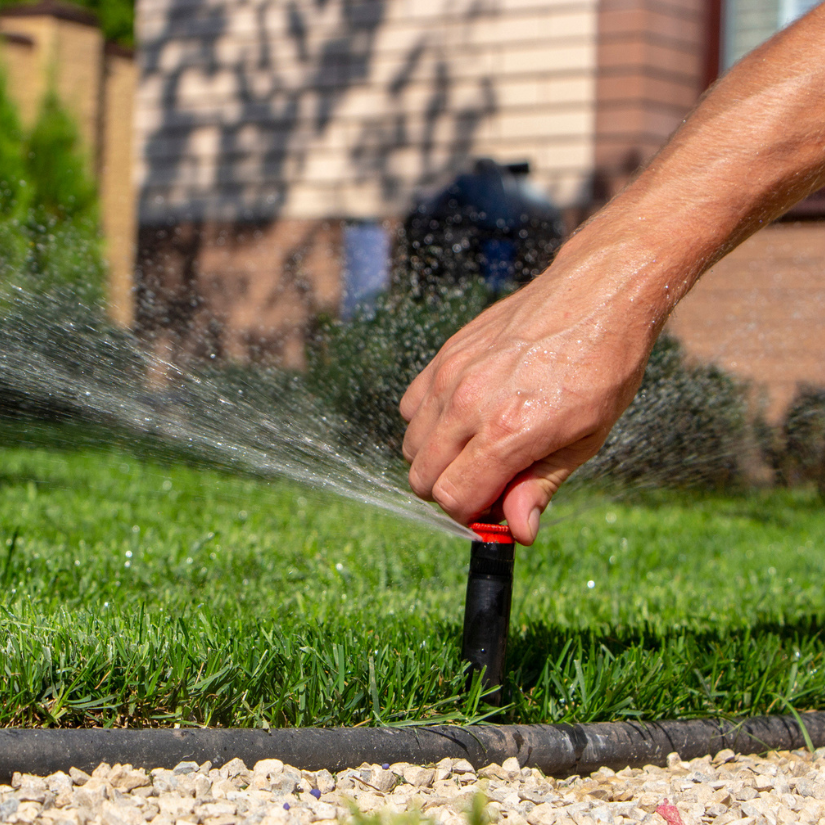
If your lawn looks dry in one spot and soggy in another, your irrigation system might not be working as it should. A professional irrigation audit is the smartest way to find out what’s really going on underground. This detailed checkup looks at everything from water pressure to coverage zones to help you save water, lower your bills and keep your yard healthy.
What to Expect During a Professional Irrigation Audit
A professional irrigation audit isn’t just a quick glance at your sprinklers. It’s a thorough inspection that helps identify problems and improve efficiency from the ground up.
Zone Testing:
Every part of your yard is divided into zones. During the audit, we turn on each zone one by one to check for broken heads, clogs or leaks. We also watch how evenly the water spreads so your grass gets the coverage it needs.
Pressure Checks:
Too much pressure can damage sprinkler heads and waste water. Too little pressure leaves parts of your lawn dry and stressed. We measure water pressure at different points in the system to make sure it’s just right.
Sprinkler Head Inspection:
We check every sprinkler head to make sure it’s working correctly and spraying in the right direction. Misaligned or blocked heads waste water and miss the areas that need it most.
Valve and Controller Review:
The controller is like the brain of your irrigation system. We check your settings to make sure watering times match your lawn’s needs and the season. We also test the valves that control each zone to make sure they open and close like they should.
Leak Detection and Water Waste Check:
Even a small leak can waste gallons of water every day. We look for wet spots, pooling and other signs that water is going where it shouldn’t. If we find any issues, we recommend repairs to stop the waste.
Why a Professional Irrigation Audit Is Worth It
A professional irrigation audit helps you save money, conserve water and protect your lawn. Fixing small problems early keeps your system running smoothly and your yard looking great. Plus, an efficient system helps you stay in line with local watering restrictions and avoid overwatering.
A professional irrigation audit is one of the best things you can do for your lawn—and your wallet. It helps you spot problems, boost efficiency and keep your yard green and thriving. At Your Oasis Outdoor Care, our irrigation team takes the time to get it right. Ready for a system checkup? Call us today to schedule your irrigation audit and get the expert care your lawn deserves.
FAQs
1. What is an irrigation audit, and why is it important?
An irrigation audit is a comprehensive evaluation of your irrigation system’s performance. It involves assessing the uniformity of water distribution, identifying inefficiencies and determining the system’s overall condition. By conducting an audit, you can ensure that your landscape receives the appropriate amount of water, reducing waste and promoting plant health. Regular audits help in adjusting irrigation schedules based on seasonal needs and detecting issues like leaks or clogged emitters early on.
2. How often should my irrigation system be inspected?
It’s recommended to have your irrigation system professionally inspected at least once a year. However, depending on factors like system complexity, landscape size and local climate conditions, more frequent inspections might be beneficial. Regular checks help in maintaining system efficiency, preventing water waste and extending the lifespan of your irrigation components.
3. What does a professional irrigation audit include?
A professional irrigation audit includes a full inspection of the system, where the technician checks for leaks, clogged nozzles and sprinkler heads that aren’t aligned properly. They also test the water pressure to make sure it’s at the right level for efficient operation. One important part of the audit is measuring how evenly water is being distributed across your lawn or landscape, often using catch cans to gather data. Finally, the technician reviews your watering schedule and makes adjustments based on your plants’ needs and the current season. This process helps reduce water waste, lower your utility bills and improve the overall health of your lawn.




